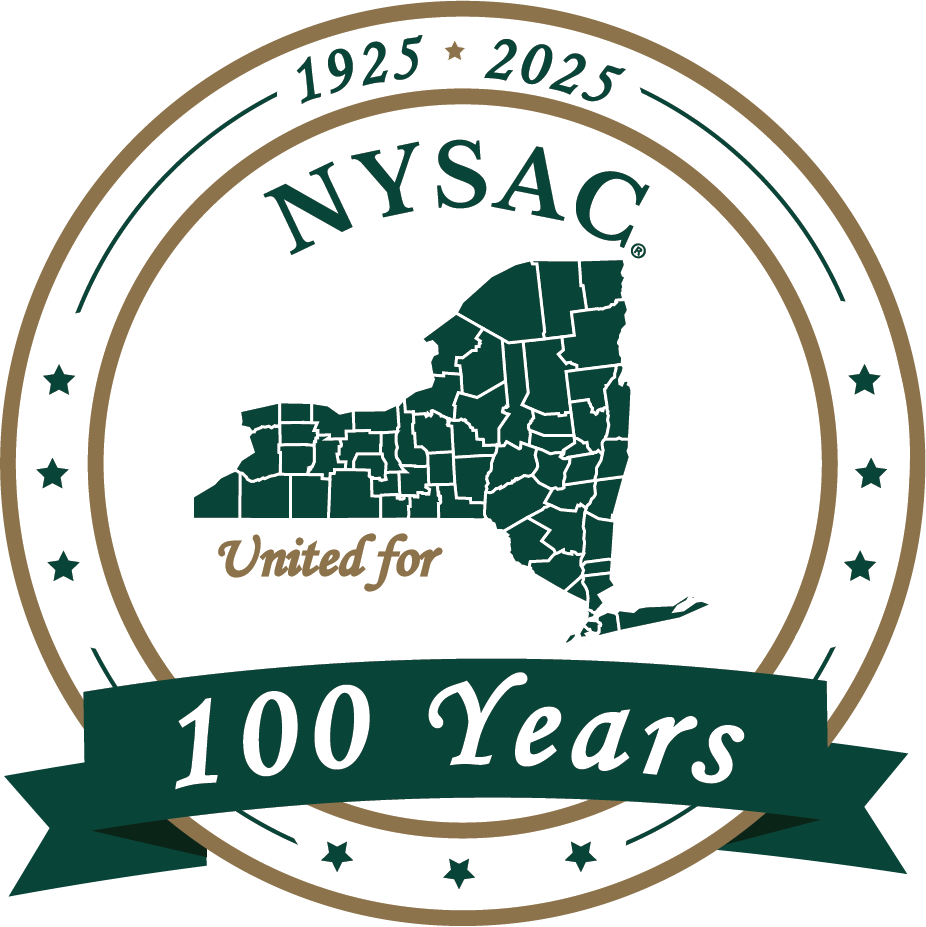NYS Community Assistance Teams are Helping Local Governments with Water Infrastructure
Record Investments are Available for Critical Drinking Water and Sewer Projects
Does your community need funding for a critical drinking water or sewer project? The New York State Environmental Facilities Corporation (EFC) can help! EFC is New York State’s water infrastructure bank and has funded some of the largest capital infrastructure projects in the state.
Under the leadership of Governor Kathy Hochul, there is record funding available now for water infrastructure projects. There is currently $325 million available through EFC’s Water Infrastructure Improvement and Intermunicipal Grant programs, with increased awards to help support small, rural, and disadvantaged communities. Another $60 million is available through the new Green Resiliency Grant program to help flood-prone communities undertake green infrastructure projects like green roofs, green streets, and permeable pavement. And an additional $420 million on top of the annual allocations for these financing programs is flowing through the State Revolving Funds in Federal Fiscal Year 2024 thanks to the federal Bipartisan Infrastructure Law. EFC is helping to make sure local governments can access all this funding by providing expert support and resources.
Monthly Regional Events & Webinars are Continuing
To date, the teams have coordinated regional events for communities across the state, in the Capital District, Central New York, Finger Lakes, Long Island, North Country, Mid-Hudson, Southern Tier, and Western New York regions. The teams also hold virtual question and answer sessions every month that are open to any community. These events include a comprehensive presentation of all available water infrastructure funding programs, as well as discussions with local governments about their needs. Upcoming sessions:
- Monthly Webinar for All Communities: June 28, 11 a.m.
- Monthly Webinar for All Communities: July 26, 11 a.m.
Get Started on Your Community’s Water Infrastructure Project with EFC’s Community Assistance Teams
Capital projects can be daunting for even the most experienced local government officials. Not sure where to start? Want feedback about how to improve your funding application? Connect with EFC’s Community Assistance Teams! Governor Hochul launched this outreach initiative in February 2023 to help ensure all communities can access the record investments for water infrastructure improvement.
“The Community Assistance Teams are a critical link for many communities who need help with their water infrastructure,” Environmental Facilities Corporation President & CEO Maureen A. Coleman said. “The goal is that no community, regardless of size or resources, will be left behind in New York's commitment to cleaner, safer water."
Many communities face water infrastructure challenges, including aging systems, workforce shortages, increasing costs, and declining rate bases. These challenges can be compounded in small, rural, and disadvantaged communities. The Community Assistance Teams serve an important role in helping to ensure that communities receive the help they need to jumpstart their projects and submit acceptable funding applications.
Since February 2023, inter-agency teams have worked one-on-one with 85 municipalities by request and hosted 18 regional webinars and events, drawing participation from more than 500 local government representatives. The teams are coordinated by EFC in partnership with the Departments of Environmental Conservation, Health, and State, and the Division of Homes and Community Renewal. Providing this connection to the several agencies that provide water funding helps communities access solutions that fit their unique needs.
One-On-One Meetings
The teams offer one-on-one meetings on-site in the community, or virtually. When a community requests a meeting, staff offer consultations to discuss their water infrastructure needs and connect them to programs based on eligibility. Staff help communities effectively prepare to submit applications by explaining processes, deadlines, and the types of supporting documentation they must submit to be competitive.
For example, any community that’s applying for low-cost loans from the State Revolving Funds must submit an acceptable engineering report for their project. These reports identify best-fit solutions for advancing well-designed, resilient, and fiscally sound projects to construction. The Community Assistance Teams connect eligible communities to EFC’s Engineering Planning Grant program that can help them develop an engineering report, which helps set the stage for a successful funding application when the project is shovel ready.
The teams are also helping communities that are further along in the planning process, by providing guidance about how to improve funding applications for eligible projects or connecting them to additional State programs or resources. Five communities that worked with the Community Assistance Teams received State water grants announced by Governor Hochul in December 2023:
- Village of Canton
- Village of Lyndonville
- Village of Parish
- Town of Potsdam
- City of Yonkers
It is expected even more communities will start applying for grants and listing their projects for financing, with the first full funding cycle underway since the initiative launched. The deadline is June 14 for State water grant applications as well as project listings for the State Revolving Funds. Any community that needs help with its water infrastructure is encouraged to request a meeting by contacting EFC at www.efc.ny.gov/cat.
Expanding Targeted Outreach
Staff have already undertaken targeted outreach to engage municipalities who have never received financial assistance from EFC or haven’t sought funding from EFC in at least five years. Under Governor Hochul’s leadership, EFC is expanding the Community Assistance Teams initiative by conducting targeted outreach to certain municipalities with populations of 3,500 or less, who may benefit from the increased awards to help support small, rural, and disadvantaged communities.
Contact Us
New York State Association of Counties
515 Broadway, Suite 402
Albany, NY 12207
Phone: (518) 465-1473
Fax: (518) 465-0506


